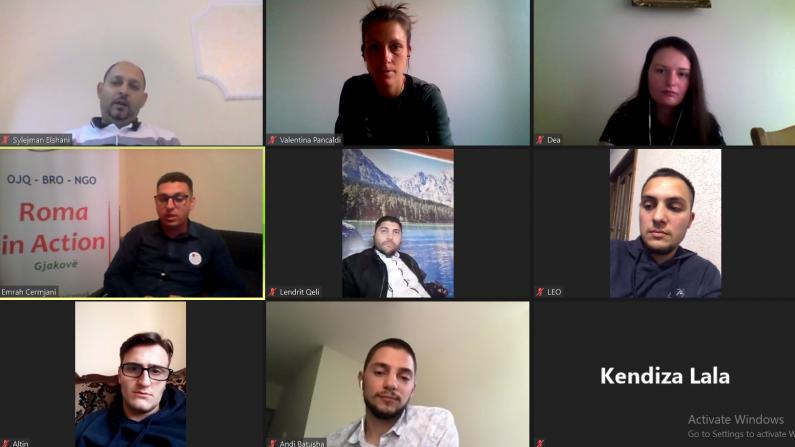
What does cultural diversity mean for Kosovo? To what extent is diversity respected, and which are the main challenges in these regards? Which is the role of civil society in this process? These were the main questions discussed by the three panelists representing different communities* living in Gjakovë/Đakovica: Mr. Andi Batusha, Mr. Lendrit Qeli and Mr. Sylejman Elshani.
Panelists offered interesting contributions and perspectives on today’s reality in Kosovo. Diversity is Kosovo’s richness, but it is often not considered as such. Indeed, despite the advanced existing legal and institutional framework, the actual application of protection mechanisms remains limited and segregation and discrimination widely spread. Even if each group, primarily minorities, faces specific challenges, ensuring the rights of all communities and the respect for diversity is a common responsibility.
This reality also emerged from the survey created and published by the peace activists’ team, which has been presented during the online meeting. The survey aimed to assess the level of awareness of local youth on the issue of discrimination. According to the results, 70% of respondents reported the existence of discrimination in schools, work environment and in the city’s public spaces, primarily targeting Roma, Ashkali and Egyptian communities.
By the end of the discussion, panelists expressed two main recommendations to civil society actors on how to improve the current situation: first of all, cooperation should be strengthened in order to join advocacy efforts towards institutions demanding an increase of public funding in this field; and, second, inclusive multicultural activities and alternative education opportunities for youth should be offered and encouraged within and outside the school system.
The panel discussion has been broadcasted live on Facebook allowing to reach a broader public (238 visualizations were recorded during the discussion).
***
“The Future We Want” is a regional project implemented by forumZFD in Kosovo, Bosnia and Herzegovina and North Macedonia in partnership with local Organizations. The first phase of the project was implemented in 2019. In Gjakovë/Đakovica, the project is implemented in cooperation with NGO Roma in Action (RIA).The project aims to promote intercultural exchange to challenge stereotypes, ethnocentric narratives and division, and build a better future through youth capacity-building and local advocacy actions. Indeed, while learning together, sharing their opinions, and living common experiences, young participants overcome barriers, which are persisting in today’s Western Balkans societies.
*In the context of Kosovo, the term “community” is used to refer to ethnic groups.